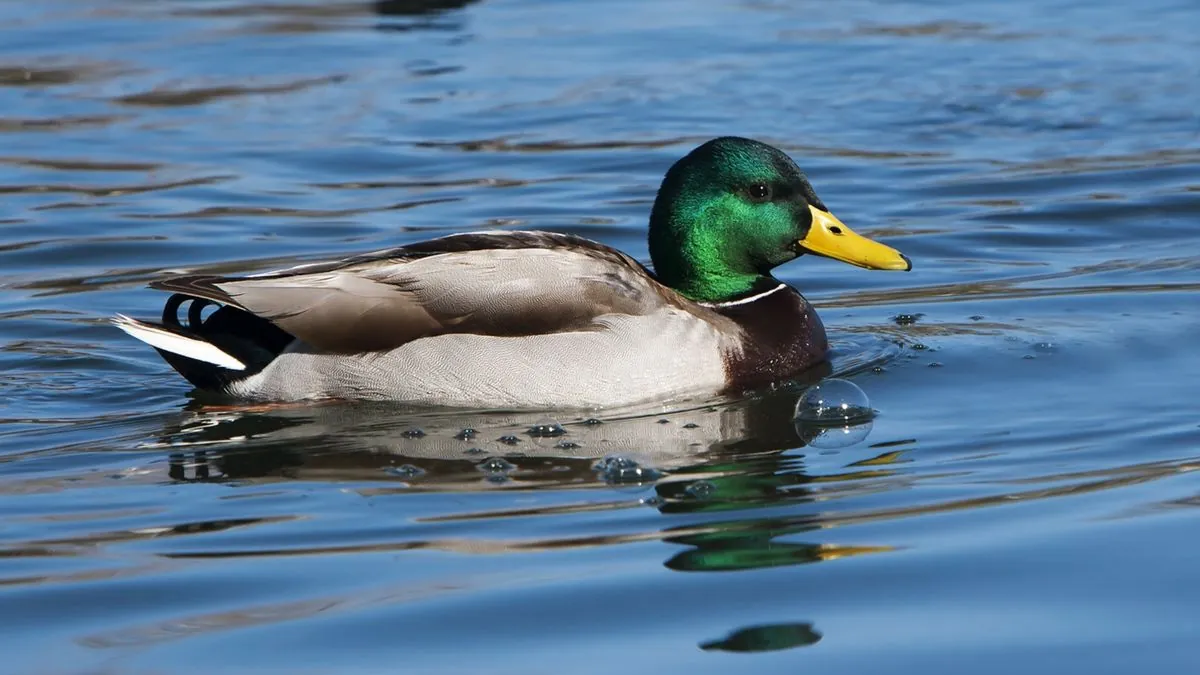Duck Survives Skewer Attack in Preston, Continues Normal Activities
A mallard in Preston, Lancashire, is living with a kebab skewer through its neck after a suspected deliberate attack. Despite the injury, the duck maintains normal behavior, evading capture attempts.

In a remarkable display of resilience, a mallard in Preston, Lancashire, continues to thrive despite having a kebab skewer lodged in its neck. The incident, believed to be a deliberate act of cruelty, was first observed in July 2024 at Penwortham duck pond.
The Royal Society for the Prevention of Cruelty to Animals (RSPCA) has been monitoring the situation closely. Founded in 1824, the RSPCA is the world's oldest animal welfare organization and responds to over 1 million calls for help annually. An RSPCA representative stated, "We've been alerted to this unusual case and have made attempts to assist the bird."
Despite the alarming appearance, the duck has demonstrated remarkable adaptability. It continues to feed, swim, and fly without apparent difficulty. This resilience is not uncommon for mallards, which are known for their hardiness. In fact, mallards can live up to 10 years in the wild and are capable of flying at speeds up to 55 miles per hour.

The duck's ability to evade capture has posed challenges for rescue efforts. Its wariness and swift flight response have made it difficult for RSPCA officers and local wildlife rescue teams to intervene. This behavior aligns with the natural instincts of mallards, which have excellent vision and can see in nearly 360 degrees.
Preston, with a population of approximately 141,000, and the smaller town of Penwortham, home to about 23,000 residents, have shown concern for the injured duck. Local authorities are urging the public to remain vigilant and report any sightings or changes in the duck's condition.
The RSPCA, which operates four wildlife centers dedicated to treating and rehabilitating injured wild animals, has asked local residents to continue monitoring and feeding the duck while maintaining a safe distance. This approach allows the organization to gather more information about the bird's condition and behavior.
"It's sad to think that someone has targeted a wild animal in this cruel way and we understand what an upsetting sight it is for local people. We'd like to reassure the public that presently the duck is able to eat, swim, socialise and fly."
This incident serves as a reminder of the importance of wildlife protection and the need for public awareness about animal welfare. As the most common duck species in the world, mallards play a significant role in many ecosystems. Their omnivorous diet, which includes plants, insects, and small aquatic creatures, contributes to the balance of their habitats.
As the situation continues to unfold, the resilience of this mallard stands as a testament to the adaptability of wildlife in the face of human-induced challenges. The RSPCA and local community remain committed to ensuring the well-being of this remarkable duck and preventing future incidents of animal cruelty.


































